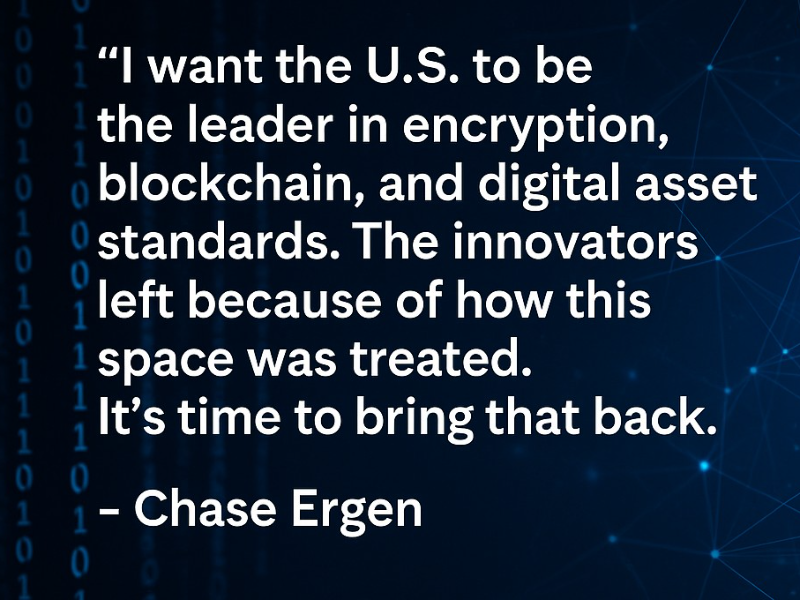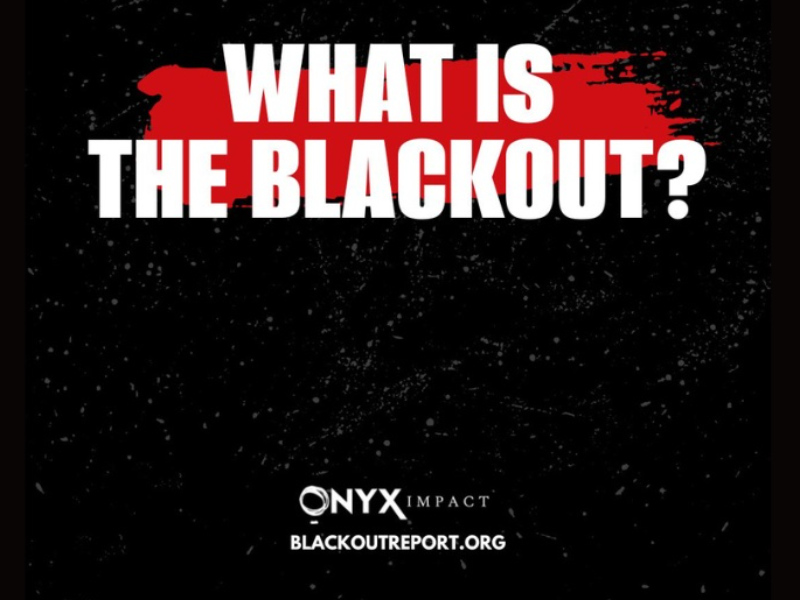Chase Ergen's Digital Currency Movement: Unveiling the Billionaire’s Motivation to Modernize U.S. Finance
As lawmakers wrapped up Crypto Week in Washington, where competing visions for digital currency took center stage, Chase Ergen was already building what many in Congress are still debating. The billionaire Dish Network heir and newly appointed board member of DeFi Technologies is positioning himself at the intersection of blockchain, artificial intelligence, and quantum security—pushing for a financial infrastructure designed to replace outdated systems and support the next phase of global transactions.
Ergen views the evolution of the dollar as a national imperative.
“The U.S. economy depends on printing the dollar and protecting its use globally. That only works if the dollar evolves,” he said.

Billionaire and DeFi Board Member Chase Ergen
Ergen’s timing is no coincidence. Last week, the Senate introduced the GENIUS Act (S.394), a bipartisan bill that would legalize the issuance of stablecoins by U.S. banks and federally regulated entities. The legislation arrives alongside a growing push to block the Federal Reserve from issuing a Central Bank Digital Currency (CBDC), with many arguing such a move would centralize control of personal finance and mirror surveillance-heavy systems like China’s digital yuan.
“The GENIUS ACTeates regulatory clarity, while the anti-central bank Digital Currency Act limits government overreach,” Ergen said in a recent interview.
“Together, it gives the right mix for innovation. You don’t want a government-only system that kills off everything else.”
Stablecoins—digital currencies pegged to the value of fiat money like the U.S. dollar—have long been discussed as a potential bridge between traditional banking and decentralized finance. Under the GENESIS framework, these coins would be issued and backed by regulated U.S. financial institutions, creating a legally recognized digital dollar without handing sole authority to the Federal Reserve.
But for Ergen, the conversation around stablecoins isn’t just about policy.
“The U.S. economy depends on printing the dollar and protecting its use globally. That only works if the dollar evolves,” he said. “The government doesn’t need to invent anything. The technology already exists. They just need to adopt it.”
Through his role at DeFi Technologies, Ergen is supporting the rollout of quantum-secure infrastructure designed to safeguard digital currency systems against future threats—especially the risk posed by quantum computing. His investment firm is backing BTQ, a company launching a quantum-secure stablecoin settlement network this fall.
“Quantum computers are a real threat to today’s cryptographic systems,” Ergen explained. “If they can break digital money systems, that’s a huge national security problem. What we’re building will protect against that.”
The timing aligns with new federal mandates requiring cryptographic systems across federal agencies to become quantum-resistant. Ergen sees this convergence—AI governance, blockchain stability, and quantum safety—as the core of the next economic system.
“We think AI will need money,” he said. “That’s going to be the second generation of stablecoins—digital dollars that integrate with AI, run on satellite networks, and are secured by quantum encryption.”
Ergen’s focus on infrastructure isn’t limited to technology. In his view, regions like Africa, South America, and the Middle East are already outpacing the West in adopting next-gen financial tools.
“They’re leapfrogging,” he said. “They skipped copper wire. That’s where the population growth is. We partnered with the Kenyan Stock Exchange so they can issue electronically traded products with digital asset access. That’s where the market is moving.”
As Congress continues to grapple with how—or whether—to regulate digital currencies, Ergen argues that financial innovation can’t afford to wait.
“Decentralized finance gives people options. Right now, most Americans have a credit card with 30 to 40 percent interest. That’s insane,” he said. “With DeFi, you can bring that down to 5%. You could launch a business using capital from all over the world—not just what your local bank allows.”
Ergen believes the U.S. government has spent the last decade actively stifling innovation through backchannel pressure and opaque enforcement.
“Operation Choke Point 1.0 and 2.0—those were real. The government was blocking crypto companies from accessing public markets,” Ergen said. “Only now is there daylight. Only now can we build this publicly.”
That shift led him to take a more visible role this year as a public board member—something he hadn’t done before.
“It’s not about visibility,” he said. “As a board member of a public company, it’s my obligation to be vocal. If the U.S. is going to lead in this space, it has to create conditions for entrepreneurs to stay here.”
The model of a digital currency tied to U.S. regulatory systems but deployed globally, with AI compatibility and quantum security, marks a departure from both traditional finance and unregulated crypto speculation. It also signals a new era of monetary sovereignty—one that doesn’t depend on paper bills or centralized banks.
“By 2030, there will be a trillion connected devices—watches, cars, machines, even robots doing agricultural work,” Ergen said.
“All of them will need a secure identity, an AI interface, and money. We're building that layer now.”
Ergen also addressed his decision to share his viewpoints with the media.
“I want the U.S. to be the leader in encryption, blockchain, and digital asset standards. The innovators left because of how this space was treated. It’s time to bring that back.”
For interviews, syndication, or reprint rights, contact: [email protected]
© 2025 New York Edge News. All rights reserved.






